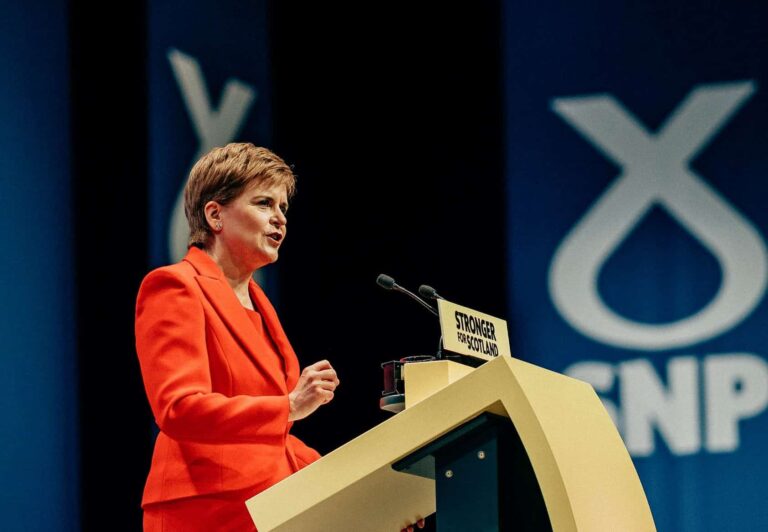On February 15, 2023, comes the surprise resignation of Scottish Premier Nicola Sturgeon, in office since 2014.
The unexpected decision is reminiscent of New Zealand Premier Jacinda Ardern’s resignation last January 19. The reasons would appear to be similar. Nicola Sturgeon said she was exhausted by the post.
“The time to leave is now”. She said so in formalizing her resignation, although she will remain in office until a successor is elected. She was the longest-serving PM in Scottish history. Since 2014, she remained unchallenged at the top of the nationalist-progressive SNP and local government in Edinburgh.
Table of Contents
Nicola Sturgeon, the Scottish premier resigns
At 11 am on Feb. 15 came the irrevocable resignation of the premier and leader of the independence-minded Scottish National Party (SNP). As anticipated, the news took the UK media and public by surprise since there had been no warning signals in recent months.
According to a source close to her quoted by the BBC, Sturgeon is simply tired and “fed up” with her longstanding political responsibilities.
In office since 2014, she took over from longtime independence leader Alex Salmond after his defeat in the referendum on Scotland’s secession from the United Kingdom held that year. She has remained unchallenged at the top of the nationalist-progressive SNP and local government in Edinburgh for nearly a decade.
Her exit from the scene will have heavy consequences in her party, already challenged by the recent resignation of Chief Whip Ian Blackford.
Nicola Sturgeon’s political career
Sturgeon, who is also the leader of Scotland’s independence party, had first been appointed First minister in November 2014. This, following the resignation of then Scottish head of government Alex Salmond, whose deputy she was. She had been in the role for two more terms after her party won the 2016 and 2021 Scottish parliamentary elections.
Sturgeon has always expressed support for Scotland’s independence from the United Kingdom. And, last June had announced her government’s intention to hold a second independence referendum after the failed one in 2014.
In November, however, the UK Supreme Court had ruled that the Scottish parliament did not have the power to call for a new referendum on its own. And that such a request would necessarily have to get approval by the British parliament.
A convinced pro-European, after Brexit and with 62 percent of Scots wanting to remain in the EU, Sturgeon advanced the possibility of not granting parliamentary consent to London’s expressed will. And she explored all options to protect Scotland’s place in the EU.
Her SNP party won in the May 2021 local elections. But, did not achieve the absolute majority that would have given the independents greater strength in again advancing the demand for a referendum on secession from the United Kingdom.
Read also: All the women leaders, premier and head of state currently in power worldwide












